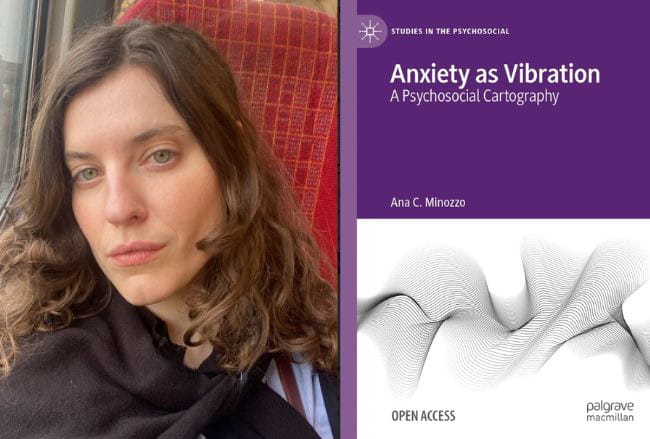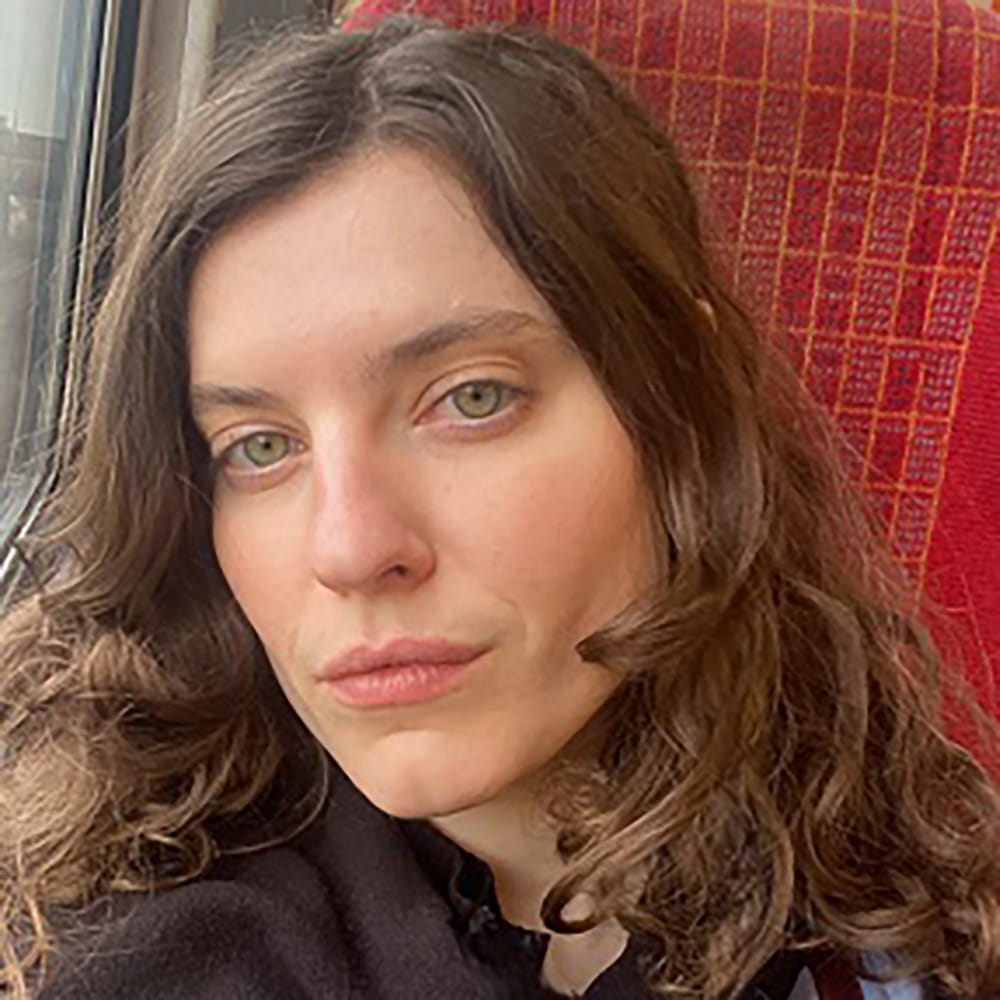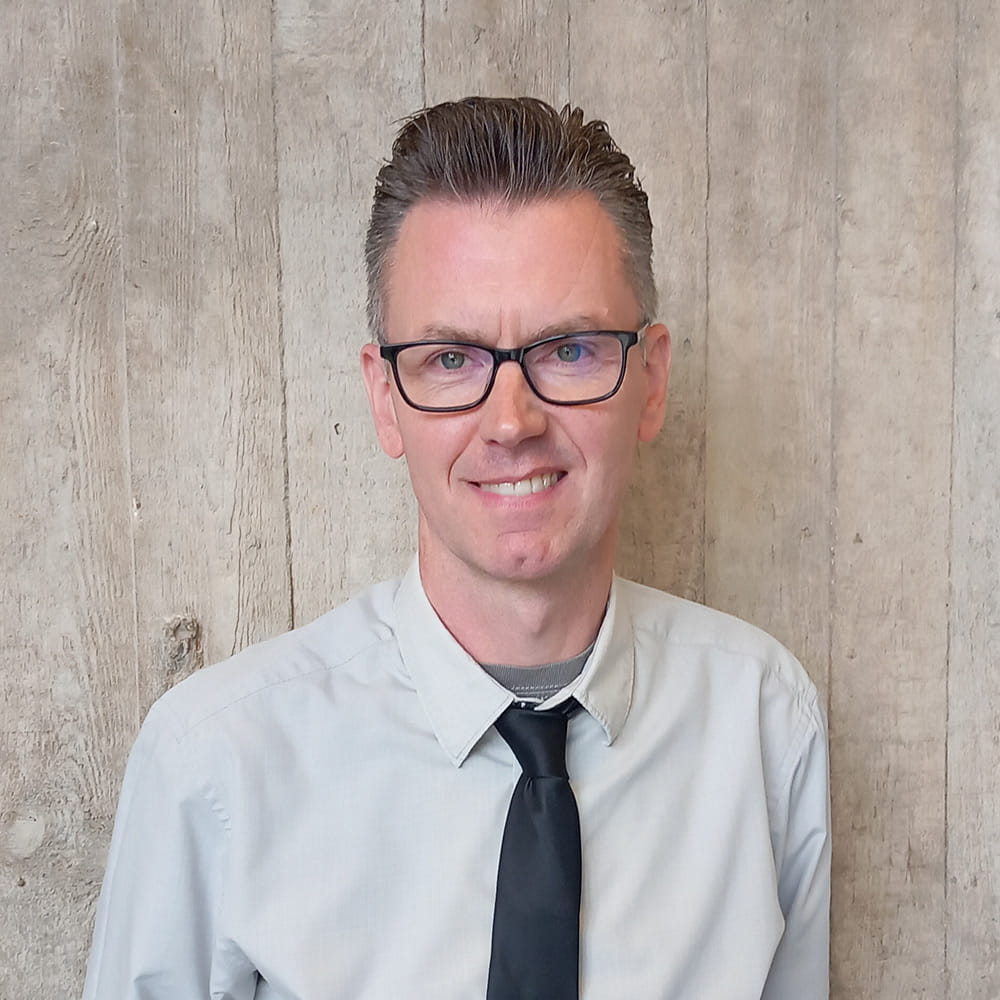Congratulations to Dr Ana Minozzo, Senior Research Officer in the Department of Psychosocial and Psychoanalytic Studies, on the publication of her monograph, Anxiety as Vibration: A Psychosocial Cartography (Palgrave, 2024).
With the support of the University of Essex’s Open Access fund, Anxiety as Vibration is now freely available for download.
We spoke to Dr Minozzo about her work and about why she chose to publish Open Access.

How does it feel to have your work published and freely available?
I feel grateful! It is a special feeling to publish a first monograph, but the fact that it is free, open, available to colleagues of our university, of the whole UK and internationally, without any prohibitive costs, is just really exciting.
Before we all download and read our own free copy, can you outline the theories at the heart of your book?
This is a psychosocial book about anxiety. There is a lot of data on the rise of anxiety in recent times and my aim was to think about what psychoanalysis, as well as philosophy and feminist theory, could tell us about what to do with so much anxiety. The book is quite theoretical, and multidisciplinary, I hope there is a little for everyone there: from really close readings of Freud and Lacan to medical humanities and art theory.
What was the original inspiration for it?
This book is the result of my doctoral research. I was really puzzled by what people around me being diagnosed with anxiety were being offered by systems of care and wondered if there could be a feminist alternative to thinking about this. I was also engrossed by classic psychoanalytic texts and, at the same time, some philosophical ideas that criticised psychoanalysis. It was a slow exercise of trying to make sense of these conceptual frames and of the world around us.
Why is Open Access important to you and how did you learn about the Open Access Fund?
The Open Access team at Essex has been phenomenal in supporting our academic community to catch up with this more accessible way of divulging our work. My research team organised a meeting with Hannah Crago and we took it from there. Just knowing Open Access was a possibility and all the ways one could go about it from the start of my journey with the publishers made the whole difference.
Personally, it is a political choice. I wanted this work to be free, available to anyone, including colleagues not connected to universities or able to access big libraries. At the end of the day, it was by being able to access the work of so many other scholars that I was able to conduct this research.
How do you plan to take advantage of Anxiety as Vibration being Open Access?
Being an open, free tool for students and researchers is, to me, a really important aspect of open access books. This format is easy for colleagues to share individual chapters with students and it makes translating the material into other languages easier.
What’s next for you? Do you have any new projects lined up?
Since 2023, I have been part of the team of researchers of FREEPSY, a collective project about the histories and legacies of Psychoanalytic Free Clinics coordinated by Professor Raluca Soreanu, here at Essex. All our research is Open Access. We have been interviewing colleagues, visiting archives, conducting fieldwork and I am now starting to work on a monograph about free clinics in Latin America.
Anxiety as Vibration: A Psychosocial Cartography can be downloaded free of charge now.
The Open Access Fund
The University of Essex’s institutional Open Access Fund enables Essex authors to publish as much research as possible Open Access. If you want to explore Open Access options please start with one of our forms: for books and chapters and for journal articles.





.jpg)


